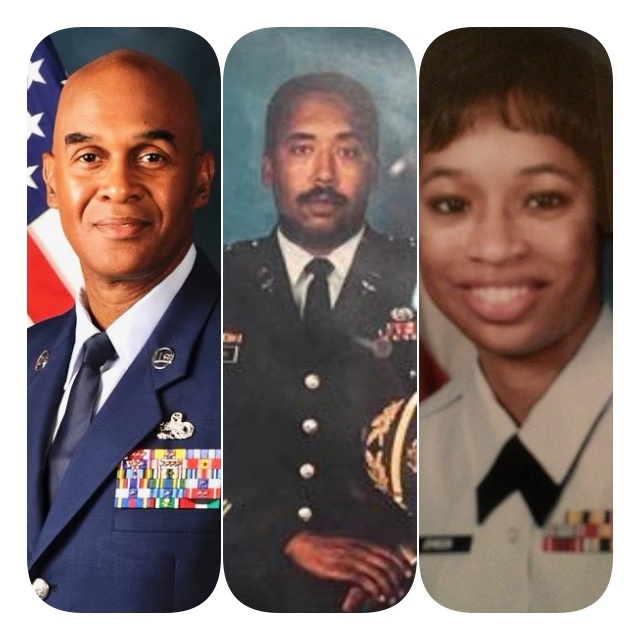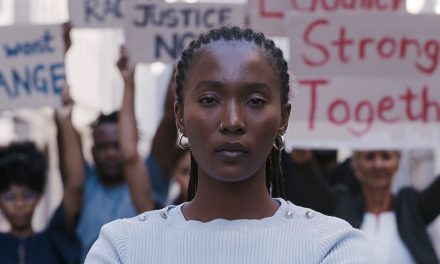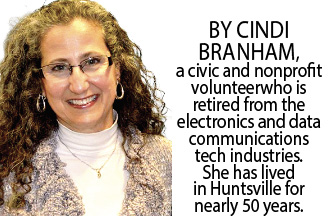By Reginald Williams,
Special to the AFRO
“To us in America, the reflections of Armistice Day will be filled with solemn pride in the heroism of those who died in the country’s service and with gratitude for the victory, both because of the thing from which it has freed us and because of the opportunity it has given America to show her sympathy with peace and justice in the councils of the nations…” spoken in November 1919 by President Woodrow Wilson, the passage marks the first commemoration of Armistice Day, to later be renamed Veterans Day.
In 1926, the United States Congress called for the sacrifice of military soldiers to be observed annually. In 1938, the annual observation became a federal holiday, and in 1954, President Dwight D. Eisenhower changed the name to Veterans Day.
The AFRO spoke with three military veterans: Jerri N. Jones, an Air Force veteran who served six years in active-duty and an additional six years as a reservist; Leroy Frink, a 30-year Air Force veteran, and Lamont English, a 22-year Lt. Colonel in the Army.
Who were the veterans / mentors that influenced your choice to join the military?
Jerri N. Jones: I was always drawn to uniforms. I liked the neatness of it—the simplicity. I liked the organization of it. I can’t say that I had any veterans or mentors that influenced my choice to join. However, there was my cousin’s best friend who attended North Carolina A&T University on an ROTC scholarship. After she graduated, she joined the Air Force. I talked to her from time to time, and she made it sound glamorous; maybe subconsciously, she was an influence on my choice.
Leroy Frink: I knew of a few older men who served in Vietnam, but their careers had little influence on my choice. However, I enjoyed war movies as a youth; The Green Berets was my favorite. I was determined to join the Army. I knew I wasn’t academically prepared for college and did not want to stay in rural North Carolina working the farm or in a manufacturing plant. My oldest brother Ronald was in the AFROTC at North Carolina State University, so I thought it would be cool to join the Air Force instead and eventually have the chance to salute him.
Lamont English: My mentors were my grandfather, a World War I Army enlisted man and retired Air Force government employee; my father, an enlisted World War II instructor, public school principal, and college president at Langston University; and my college ROTC instructor, also a decorated Army hero who fought in the Korean Conflict and was an esteemed Kappa Alpha Psi fraternity leader. He saw leadership qualities in me that I did not see in myself. That resulted in me becoming a distinguished military graduate.
What was military life like for you?

Jones: When I entered the military in 1989, military life was quiet [no military conflict]. Folks were enjoying their benefits and, for the most part, just chilling. Life in the military, for me, especially in the early years, was like college, but instead of attending classes every day, I went to work.
Things quickly changed for most military members in 1990 when the eruption of the Gulf War. The United States led an armed conflict against Iraq that operated in two phases: Operation Desert Shield and Operation Desert Storm. America deployed more than one-half million soldiers.
Many Reservists’ only experienced active-duty either during their one weekend per month or two weeks out of the year. Talk about experiencing culture shock. It was unbelievable, and for the first time, I wondered—what have I gotten myself into? I was okay with serving but did not want to see a war zone. It was tragic seeing soldiers leave one way and come back another, whether it was a loss of limb or the loss of a certain innocence they owned before traveling the world to protect and serve.
Being in the military felt weird. All decisions are made for you as if you are not a real person. That’s what bothered me about serving; I didn’t have much of a voice. I served well and was promoted fast. But in the end, I decided that the military just wasn’t for me. It wasn’t an environment where I wanted to raise children, and I didn’t like feeling like I had no voice. However, I am glad that I served. I learned much about myself and was exposed to many different people and cultures. Additionally, there was a level of discipline I obtained, and at 18, that was something I needed.

Frink: It was a blast, a wild ride, and one of the best decisions I have ever made. The military provided me with a structure with benefits and consequences. It provided me with the opportunity to grow up and become a man. Leaving rural North Carolina for my first assignment in the high desert of Victorville, CA., was a wake-up call. It was kinda like the “you’re not in Kansas anymore” moment. I quickly realized I was on my own and had to make big-boy decisions.
I was able to travel to over 40 countries during my career. I played different sports, including football, basketball, and track, which allowed me to travel throughout Europe during my assignment in Spain. That exposure gave me a unique perspective of the world, its people, and the various cultures. And I have lots of opinions because of my travels and the people I have met through those travels. The military, an equal opportunity employer, provided me with an opportunity for promotion regardless of my skin color. There are biases and overt discriminatory practices by some members, but I quickly figured out the system and understood what it took to get promoted.
Some of my most memorable highlights were meeting the men of the 332nd Fighter Group, The Tuskegee Airmen, who supported and flew the famous P-51 Redtails and other fighters and bomber aircraft. I met Lt. Col. Herbert Carter in 1998 while attending training in Montgomery, AL. I was honored to meet Col. Charles McGee. He flew 409 combat missions spanning World War II, the Korean War, and the Vietnam War and was one of the most decorated servicemen in U.S. history.

English: During my 22 years of service, in the early sixties’ racism was a daily occurrence in a military composed largely of Southerners. Growing up in a segregated South strengthened me for the experience. But I did see improvement. When I entered the service in 1964, Major was the highest rank any Black officer attained in the Medical Service Corps. I retired as a Lt. Colonel in 1986, and at that time, the Chief was a Black Brigadier General.
How did you preserve your mental health while also serving?
Jones: Good question. I don’t know that I preserved my mental health while serving. I came home deeply depressed. I don’t think it was as severe as PTSD, but it was a culture shock. I’ve never been incarcerated, but I tend to understand that feeling of being away, and things have been happening while you were in this little bubble. It took me a minute to adjust. If there were resources to support me during that time, I didn’t know how to access them. Now that I think about it, I probably drank too much, which in and of itself was a form of coping mechanism.
Frink: I never personally thought about mental health much during the first half of my career. Life was good. I was having a great time working, partying, and seeing the world. In 2005, after serving as a First Sergeant for 10 years, I realized I was getting burned out. My outlet was confiding in my peers, the chaplain and staying connected with my spiritual walk with God.
English: Having been involved in the de-segregation of my high school in 1955, the year after Brown versus the Board of Education, the military was a piece of cake for me, considering all the racism I had experienced as a young 15-year-old student-athlete. I experienced seeing the face of Emmett Till, my age, in an open casket displayed in Jet magazine. Having attended an HBCU, I healed and grew into a strong, knowledgeable warrior entering the military.
How has the service changed over time?
Jones: The military changed after 9/11. Undoubtedly, the wars and terrorist acts have taken a toll. Beyond that, I remember a proud moment routed in Black excellence. I served in the Air Reserve Personnel Center with a Black Commander—Colonel Ramsey, a Black Squadron Commander—Major Velma Turner, and a Black Chief Master Sergeant (Hale). My boss was Black, and I was Black. We ran that center. That really made me proud to be a part of something like that. The military will give you opportunities to lead, and I appreciate that.
Frink: The fatigue of war and continual deployments are a heavy strain on our Airmen and their families. Air Force manning dropped from a high of around 535,000 in 1990 to about 330,000 currently. Airmen are required to do more with less and with older equipment in some cases. The stress of affordable housing and childcare can be unbearable. Complicating the problem is the lack of recruits due to low public confidence, fear of dying, and the competition of other careers.
English: The upside is that we have had representatives [Blacks] from our village occupy the highest offices in the military. The downside is with the elimination of the draft; privileged people no longer have to serve and defend America. Just look at our divided Congress, where only a handful of those representatives in the People’s House have served or truly understand the price of serving.
Reginald Williams, the author of “A Marginalized Voice: Devalued, Dismissed, Disenfranchised & Demonized” writes on Black men and Holistic Health concerns. Please email bookreggie@reginaldwilliams.org or visit amvonlinestore.com for more information.
The post Three voices sing in harmony about being a U.S. veteran appeared first on AFRO American Newspapers .










